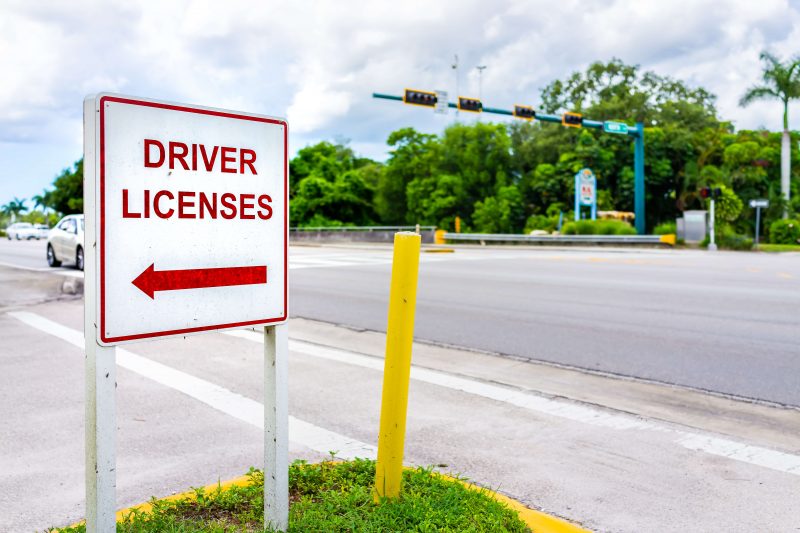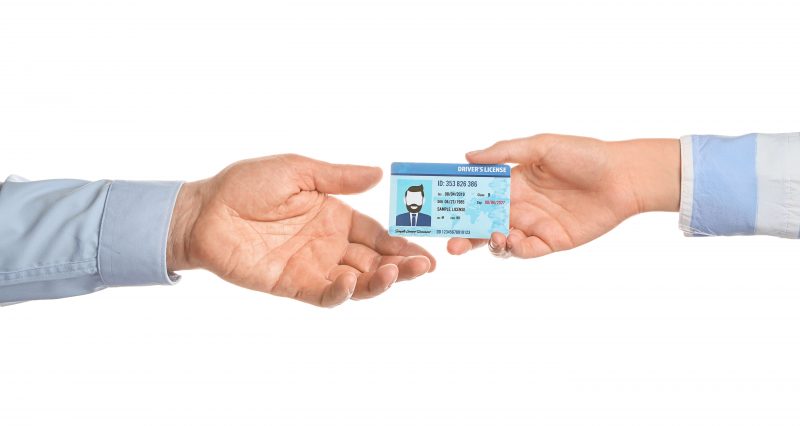We know that for many of our readers, obtaining a driver’s license is something from the deep past. We learned to drive, we passed all the tests, and finally got that shiny plastic certificate that allowed us to get behind the wheel many, many moons ago. We are also aware that we’ve got a few younger readers out there (hey, hey!) who can’t look back over thirty years of driving quite yet, and perhaps a few who either never managed to procure a driving license, or perhaps have come to our fair shores from other countries and now have to begin the process from scratch.
Use eTags© to Quickly Complete Your DMV Service. Renewals, Title Transfers and More, All Online!
In general, it’s something that’s a given for most folks in the United States – at least those who are interested in driving. Of course, as with all things, there are exceptions – there are those people who simply don’t fancy captaining a car. And we get it: it’s nice to have someone else do all the work, right? But for those who do want to drive, and haven’t attained a license yet, it can seem intimidating.
Across the country, each state will have its own list of rules and regulations, its own set of laws regarding the acquisition of a license to drive.
Today, we’re going to spotlight the Sunshine State, giving you the lowdown on what it takes to operate a motor vehicle in Florida. And in typical (helpful) eTags fashion, we have fashioned (get it?!) a handy list for you. We can’t help it, we loooove lists, so let’s get into it!

The preliminary requirements dictate that you must:
- Be at least sixteen (16) years of age
- Complete a drug and alcohol course
- Pass both vision and hearing tests
- Pass Florida’s Class E Knowledge Exam
- Pass Florida’s Class E Driving Skills Test
- Provide all the necessary documentation and identification
In the case that you are at least sixteen, but still under eighteen, there are a few extra elements to note:
- You must be in possession of a learner’s permit for at least twelve months (or at least until you reach your eighteenth birthday) prior to applying for a permanent license.
- You must be free of any traffic violations within twelve months of obtaining your learner’s permit. In the case that you do happen to get one moving violation, it will not prohibit you from obtaining your permanent license should you complete the required Basic Driver Improvement Course.
- You will need to have fifty (50) hours of driving experience under your belt, with a minimum of ten of those hours clocked in as night driving. These hours will need to be attested to formally by a parent.

Some interesting notes about the required courses are as follows:
- The drug and alcohol course, also known as Drug, Alcohol and Traffic Awareness (DATA) is a four-hour course that can be accessed online at any time
- The hearing and vision tests are taken in-person at a Florida Department of Highway Safety and Motor Vehicles (FLHSMV) location. If you wear corrective lenses or glasses, you will need to report this at the time of the test, and a condition will be added to your license, stating that they must be worn at all times while driving.
- The Class E Knowledge exam is a written test that focuses on Florida traffic laws, traffic controls, and safe driving practices. You will need to achieve at least an eighty (80) percent score in order to pass, but everything pertaining to the exam can be found in the Official Florida Driver License Handbook.
- The Class E Driving Skills Test, the one where you get behind the wheel, will take place at a FLHSMV location with a supervising driving examiner. It’s important to note that you will need to arrive for your exam appointment in a registered, insured vehicle that must past a safety inspection before commencing the driving exam.

The test will focus on your ability to:
- Maintain driving posture
- Signal, turn, and back up
- Obey all traffic signals
- Stay in your lane and follow at a safe distance
- Approach intersections
- Overtake a vehicle, observe right-of-way
- Manage straight-in parking and parking on a grade
- Perform a three-point turn
- Brake quickly
If you happen to already be in possession of a valid driver’s license from the U.S. Military or another State or Territory, you will be exempt from taking both the written and driving exams.
Good news for new residents, right? Additionally, if you hail from Canada, France, Germany, South Korea or Republic of China (Taiwan) and have a valid license, this too will exempt you from the requirement of both Florida exams.

When arriving for your appointment at a FLHSMV location, you are required to bring the following documentation with you:
- Proof of identification. This must come in the shape of an original or state-issued copy of your birth certificate (photocopies will not be accepted) or your U.S. Passport.
- Two forms of residential address proof. Things such as utility bills or school transcripts can be used. In case you have neither of these available, there are alternatives that involve providing proof of address of parents or guardians.
- Proof of your social security number. You can either present your original social security card or a W-2 tax document listing your number.
If all this sounds confounding, or perhaps you are new to the States and you need other options for proof of identity, you can find a whole list of acceptable documents over at the FLHSMV site.
And there you have it – what it takes to get driving in the state of Florida. We know it’s no fun digging for info when you want to just get things done. That’s why at eTags, we do what we do. Titles, tags, renewals, replacements, duplicates…we facilitate the quick and easy process of all these things. Give us a gander here, and let us know how we can lend a hand. Because, as always, at eTags, we’re here to help!








